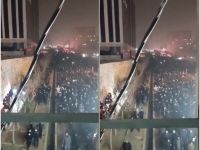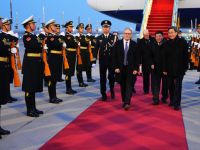Lebanese borders are still open to refugees, albeit in reduced numbers, UNHCR country representative Ninette Kelley said, and cooperation between the agency and the government over entry and exit is ongoing. In an interview with The Daily Star, Kelley clarified the UNHCR’s position on several points related to Lebanon’s changing policies toward Syrian refugees and hinted at the agency’s planning for next year.
Since early June, through decrees issued by individual ministries and recommendations made by the ministerial committee tasked with managing the refugee file, key policy changes were proposed, including revoking refugee status to Syrians who return home. Recently, Social Affairs Minister Rashid Derbas said Lebanon was denying access to Syrians unable to present exigent humanitarian reasons for entry.
“We have seen a very real reduction in the number of refugees who are able to get through and seek our assistance, but we are also seeing that there are cases where humanitarian exceptions are being made,” Kelley said. “So, the border hasn’t been completely closed, which the government has said, [and] that’s consistent with what we see.”
However, she said, the UNHCR has not, to date, received any details about the criteria employed by General Security to decide what constitutes a humanitarian case for entry.
Kelley said that “from the very beginning” General Security has provided the UNHCR with the names of persons who have gone back and forth to Syria.
“We have looked at those names and tried to determine what number of those names, because there are a lot of names, also matches our database, and then we have called people in ... to interview them and find out the reasons for their going back,” she said. “And we have deregistered people for whom their going back to Syria has shown that they aren’t in need of international protection or assistance, and that’s something that we have done willingly with the government, recognizing that refugee status is for persons who have a well-founded fear of persecution and are fleeing civil unrest inside Syria.”
Since June, Kelley said 68,000 Syrians had their refugee status removed. That number includes Syrians who failed to keep in touch with the agency by not showing up to pick up aid, or who were deemed not to be in need of protection any longer, after a routine interview conducted annually prior to renewing refugee documents.
The country representative said the UNHCR was still in negotiations with the government regarding to several issues, but said she “appreciated” and “understood” the justifications guiding Lebanon’s changing refugee policies – namely the burdens associated with hosting 1.2 million Syrian refugees.
As the UNHCR prepares to make its annual appeal to donors to finance next year’s Syria refugee response, Kelley said, planning for 2015 would focus on working with community-based organizations and enhancing delivery through local NGOs and grassroots organizations, as well as enhancing institutional capacities and providing support to host communities.
Last year’s record appeal of $1.89 billion for Lebanon, out of the $6.5 billion regional total, received just 38 percent of requested funds from donors.
Referring to the Arsal clashes in August, Kelley said the agency had long cautioned against the buildup of a large refugee population in the area due to its proximity to the border.
“In our experience in refugee situations around the world, this is a dangerous situation because armed elements can get purchase in refugee hosting areas and use that as a base for their activities, which was borne out in Arsal,” she said.
Touching on the government’s proposal to set up formal refugee camps along the border with Syria in Masnaa, Kelley reiterated the UN’s stance that the plan is “unadvisable.”
“We don’t think it’s advisable, but we recognize territorial sovereignty,” she said. “And should Lebanon decide to put a camp there, then that’s Lebanon’s decision to make, but it’s incumbent on us to provide our expert advice, and our expert advice is that could be a threat, not just to refugees but to Lebanon.”
By Samya Kullab










